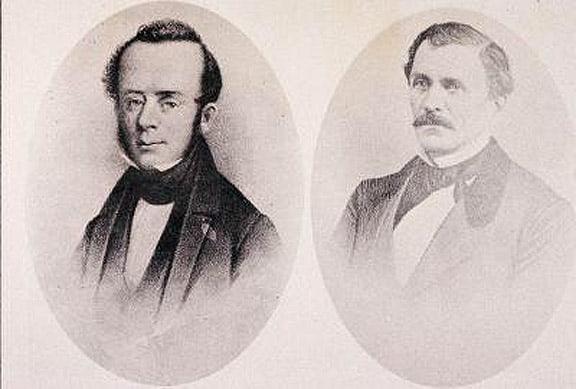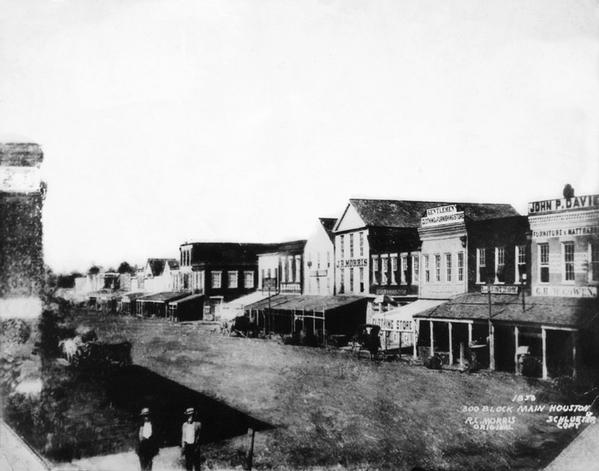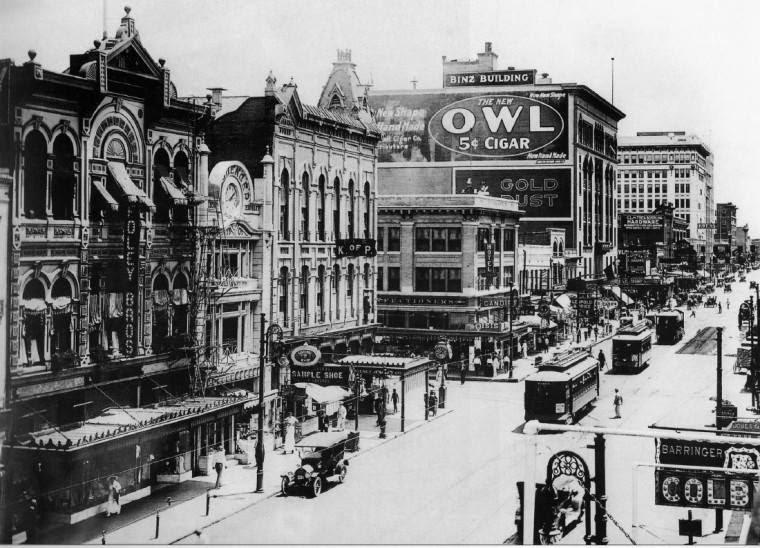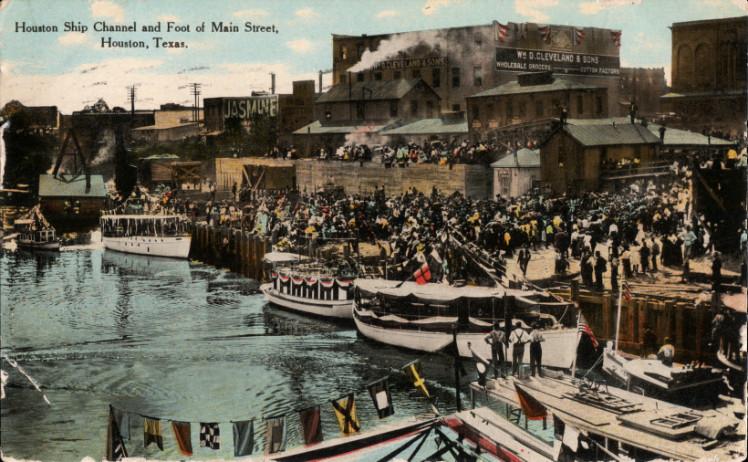
A Local Business Lawyer Who Knows How To Get Things Done in Houston
Why Tri Believes Doing Small Business in Houston is so Special
Tri knows that doing small business in Houston is special, and understanding a bit of Houston’s history and how it is interconnected with small business makes its uniqueness all the more evident.
A Brief Look Back: Frontier Town to Global City of Commerce
Houston traces its origin back to the 1830’s to the Allen brothers – two brothers who had a vision of creating a town. It wasn’t long before others began to think Houston could be much, much more.

Vision led to planning. . . and planning led to work . . . to transform a muddy, dusty collection of frontier, temporary structures into a city worthy of becoming the capital of Texas.
That entrepreneurial spirit – business formation – here in Houston from its founding, has continued to define its development and growth ever since.
The Allen brothers befriended Sam Houston before the monumentally defining events of the Alamo and the Texas forces later avenging it with the victory over General Antonio Lopez de Santa Anna at the San Jacinto River.
Independence of Texas came with the victory and the Allen brothers now had their way clear to purchase land they then hoped to subdivide and resell. They secured over six and a half thousand acres on the Buffalo Bayou, upstream from what then was the growing and busy port of Galveston and named the new town “Houston” in honor of their friend and leader.

But why not dream large? A 2-story wooden capitol building was constructed in hopes of becoming the seat of government. In April 1837 the new Texas Congress moved the new nation’s capital to Houston, the new town. Within a short time, the area had a small business community forming – transacting business out of crude shops – lean-tos and canvas mostly. Perhaps mostly because of its location, wagon freight and later railroads hauling goods to the port at Galveston, began passing though Houston.
While Houston wasn’t able to retain the seat of government for the nation, it did hold on to being the capital of business – business formation and economic transactions thrived.
From this rough beginning, Houston grew and flourished.
Houston was about 50 miles from the Gulf, yet in 1844 when a steamboat navigated up the Buffalo Bayou from the gulf, its leaders began calling the town the “Port of Houston”. Later it was also advertised as where the “railroads meet the sea”. The rate of growth and the type of growth for Houston was unique, so much so that some began to call it “Babylon (or Baghdad) on the Bayou”.

The name “Port of Houston” fostered a vision and concerted effort to make that a fact instead of just a name. In 1910 business leaders of Houston won approval from the U.S. Congress to widen and deepen the Buffalo Bayou to accommodate deep draft ships. It took four years to complete “our little ditch” as locals affectionately called it… and that “ditch” would forever change Houston and its commerce. By 1930 the port was the eighth largest in the U.S. and had eclipsed Galveston partly due to protection from harsh hurricanes that the exposed infrastructure at Galveston experienced.

The 20th Century continued with radial changes and diverse business formations for Houston. The Spindletop oil well signaled the onset of a global economy powered by incredibly dense energy contained in oil. Houston was in a great location and had the business culture to develop as the world’s energy capital along with all the industries related to oil. Later, the Second World War needs of shipbuilding and steel manufacturing brought growth.

Houston by the 1970s was described as, “Sophistication, incredible generosity and civic selflessness permeated the coarse commercialism of the emerging megalopolis on the East Texas plain.” Sports, as an industry later had its own day in the sun and the Astrodome was viewed by many as a wonder of the modern world. Charity was a core attribute in Houston exemplified by the philanthropy that brought Baylor University to the city, later forming the core of the Texas Medical Center, the largest medical complex in the world.

Houston Today
Today, Houston is home to many businesses including corporate headquarters for almost two dozen of the Fortune 500 companies. The City is friendly to entrepreneurs – new businesses that, like the companies now on the Fortune 500, began small.
According to data from the Houston Chamber of Commerce, Houston had 319,290 businesses, with 4,424 added in 2018, up from 3,463 the year before. While the data lags a year or so, the economy of Houston employed more than 3.5 million people split between huge numbers of small business including those in the industries of professional services (21,978), restaurants (8,722), and personal services & consultants (7,786).
So much has transpired over the decades from the small, dusty, frontier town beginning. “As the nation’s fourth-largest city, Houston at the dawn of the 21st Century is a melting pot of peoples and cultures, a dynamic community of world-class art, entertainment, food and attractions.”
Two Types of People Paving the Path Ahead
Growth and development that goes well isn’t an automatic process; it requires at least two types of people. First, a type of people who are visionary and tenacious and hopefully charitable. Houston’s history is filled with legendary, visionary figures going right back to its origin . . . too many to chronicle here.
Second, it also requires people who could support these visions into fruition with legal acumen – designing new industries and business formations according to federal and state laws regulating transactions.
Houston can never be disconnected from a century and a half of its history, especially with it being such a rich history indeed. At the same time, it is the small businesses and people working them today that comprise the heart and soul of Houston.
Let Tri Help You Shape Your Part of the Story
Tri Nguyen, as a small business, law attorney in Houston, is a part of all that. It was into this small business and industrial hub that Tri Nguyen began investing in himself through education and after then after gaining experience in the legal system he took the time-honored step of forming his own small business.
Tri understands the challenges and opportunities Houston offers small businesses. Tri knows entrepreneurship in Houston from both the side of the businessman taking the risk, reaching for the vision of something more. . . to the legal professional who knows the rules and requirements of establishing a business and running it properly.
As an experienced business attorney, and a business owner himself, Tri can advise you on navigating the business law of state government, federal government or their agencies. Tri can provide you with representation if you are faced with a legal matter or a complex business transaction.
His business exists to assist you in making your business the best it can be . . . so that it can contribute to the good of its owners, its customers and all of greater Houston.
We know it is a significant decision who you allow to handle your business’ legal needs. Tri will give you our best . . . so that the value you receive is maximized. Why not let Tri Nguyen help your small business join the long and prosperous history of small business in Houston?
Serving from Houston, Texas
Houston, Texas
But Serving Clients Worldwide!Tri Nguyen Law Office PC
1220 Blalock Rd., Suite 300
Houston, Texas 77055
844.924.9529
tri@trilawoffice.com

